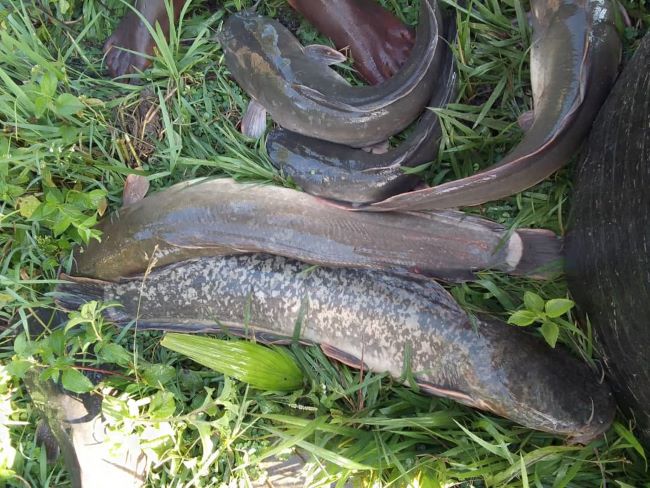Lira City, November 16, 2024 – Fish farmers in the Lango Sub-region are calling for the establishment of a local fish feed processing plant to address the challenges they face in accessing affordable feed. Currently, many farmers are forced to rely on distant suppliers, making fish feed both costly and difficult to obtain.
Robert Owinya, a fish farmer in Oyam Town Council, Oyam District, highlighted the high cost of fish feed, which he says is priced at Shs 10,000 per kilogramme. “Many people in this area want to venture into fish farming, but the high cost of feed is a major barrier,” Owinya explained, adding that a local fish feed processing plant in Northern Uganda would greatly benefit the affected farmers.
Nelson Ongom, a fish farmer and Chairperson of the Fish Farmers Association in Loro Subcounty, Oyam district, shared his experience of struggling to afford quality feed for his fish. As a result, he has resorted to using maize bran as a substitute. “I can’t afford the recommended fish feed, so I’ve had to improvise with maize bran,” Ongom said.
The raw materials needed for floating fish feed are diverse and include fish meal, wheat meal, yeast powder, soybean meal, cottonseed meal, peanut meal, rapeseed meal, and mineral and vitamin premixes, among others. Despite the availability of these ingredients, a major challenge remains: the lack of a local processing plant to produce the feed in the region.
Ronald Otim, the Acting Fisheries Officer for Kwania district, explained that the high cost of fish feed and fingerlings is a significant challenge for local farmers. “Fish feed alone takes up 70 percent of the capital investment in fish farming, making it unaffordable for many farmers,” Otim said. “Though we try to support farmers, the cost of feed remains a major setback.”
Michael Okello, the Fisheries Officer for Lira District, echoed these concerns, noting that while the raw materials for fish feed are available in the region, the lack of a processing facility is hindering local fish farming. “We have all the necessary raw materials, but we don’t have a feed processing plant in the area,” Okello said. He called on the government to intervene and help provide local solutions for fish feed production.
Despite these challenges, Okello emphasised that Lango has a strong potential for fish farming. “The region has abundant swamps and water resources that are ideal for aquaculture,” he said. “The main issues are the availability of affordable feed and quality fingerlings.”
Lango Sub-region is home to over 1,000 fish farmers, many of whom work in cooperative groups. Some of the active fish farming groups in the area include the Kairomo Fish Farming Group, Acenglworo Fish Farm Cooperative, Kali Fish Farming Group, Aleko Fish Farming Group, Omare Fish Farming Group, and Kica-arwot Fish Farming Group, among others.
As the demand for fish farming continues to grow in the region, stakeholders are hopeful that addressing the feed supply issue will help unlock the full potential of the industry and support the livelihoods of local farmers.
https://thecooperator.news/fishing-amolatar-district-boss-demands-withdrawal-of-updf-from-l-kyoga/
Buy your copy of thecooperator magazine from one of our country-wide vending points or an e-copy on emag.thecooperator.news
